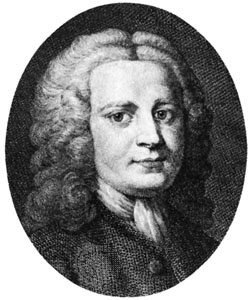Hartley, David
British physician and philosopher
born Aug. 8, 1705, Armley, Yorkshire, Eng.
died Aug. 28, 1757, Bath, Somerset
 English physician and philosopher credited with the first formulation of the psychological system known as associationism. Attempting to explain how thought processes occur, Hartley's associationism, with later modifications, has endured as an integral part of modern psychological theory. Hartley was also noted for advocating a physiological psychology divorced from metaphysics.
English physician and philosopher credited with the first formulation of the psychological system known as associationism. Attempting to explain how thought processes occur, Hartley's associationism, with later modifications, has endured as an integral part of modern psychological theory. Hartley was also noted for advocating a physiological psychology divorced from metaphysics.Though he was educated for the Anglican ministry, an unwillingness to assent entirely to the Thirty-nine Articles of the Church of England precluded his taking holy orders. Turning to medicine, he held practices at Newark, Nottinghamshire, London, and Bath. His major work was Observations on Man, His Frame, His Duty, and His Expectations (2 vol., 1749). Though Hartley regarded Observations as a contribution to philosophy, the work is important in the history of psychology for suggesting that body and mind function in concert. From John Locke's Essay Concerning Human Understanding (1700) he adopted the concept of the association of ideas—that ideas are interconnected, sequential, and descriptive of experience. By fusing Locke's concept with his own view of the nervous system, Hartley sought to explain how the most complex mental processes—imagining, remembering, reasoning—might be analyzed into clusters or sequences of elementary sense impressions and that ultimately all psychological acts might be explained by a single law of association.
- Wise, Robert
- Wise, Stephen Samuel
- Wishart, George
- Wislicenus, Johannes
- Wismar
- Wispelaere, Paul de
- Wissel Lakes
- Wissler, Clark
- Wissmann, Hermann von
- Wisteria
- Wister, Owen
- Wisława Szymborska
- witan
- Witbank
- witch ball
- witchcraft
- witch doctor
- witches'-broom
- witches' sabbath
- witch hazel
- Witch of Endor
- witchweed
- Witelo
- Wither, George
- witherite